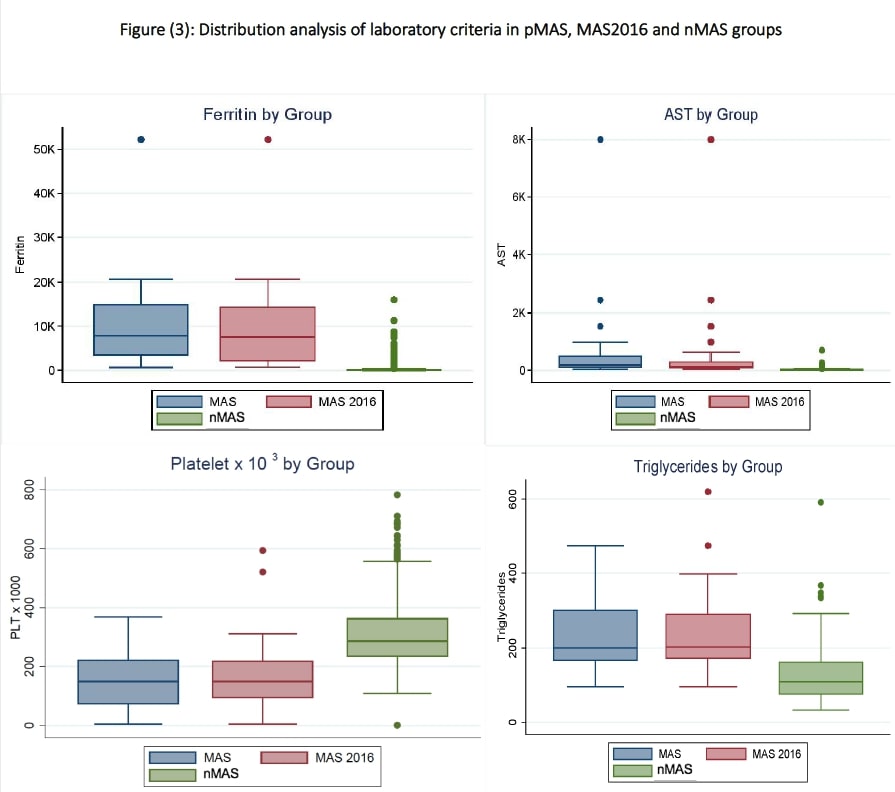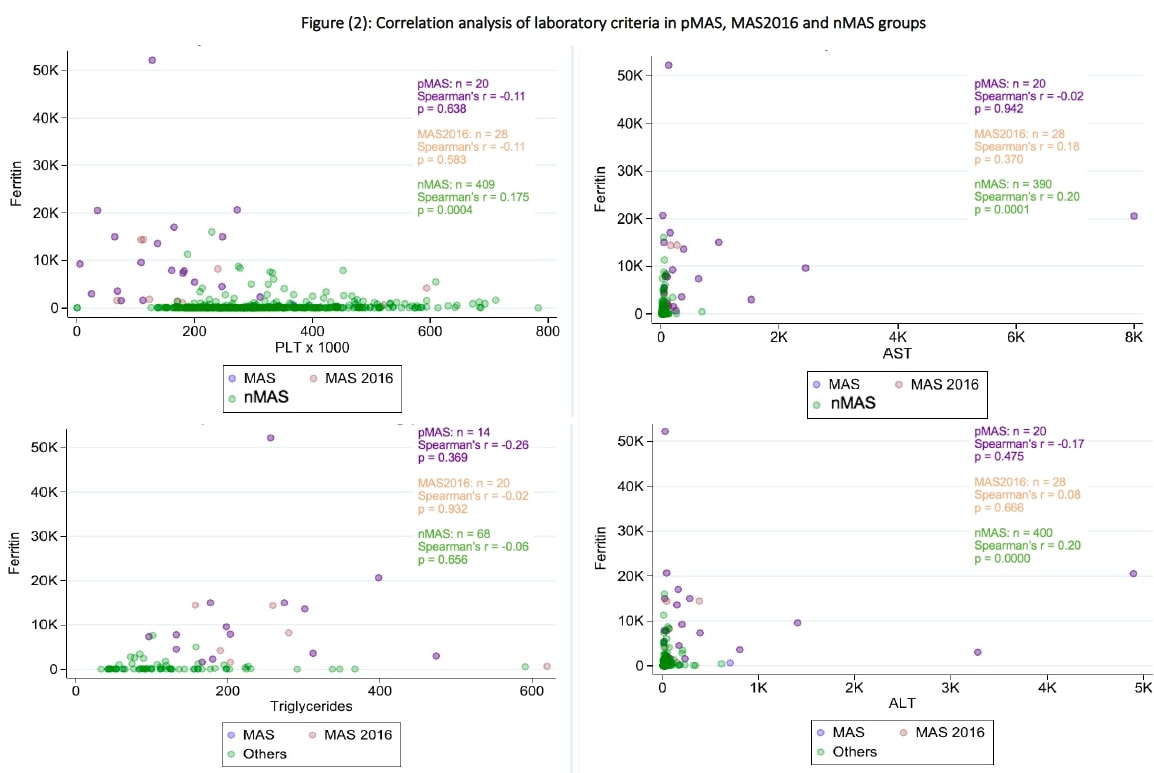Session Information
The 2020 Pediatric Rheumatology Symposium, originally scheduled for April 29 – May 2, was postponed due to COVID-19; therefore, abstracts were not presented as scheduled.
Date: Thursday, April 30, 2020
Title: Poster Session 1
Session Type: ACR Abstract Session
Session Time: 6:00PM-7:00PM
Background/Purpose: Macrophage activation syndrome (MAS) is a feared complication in~ 10% of those systemic onset juvenile idiopathic arthritis (sJIA). Due to the similarity of MAS clinical features to hemophagocytic lymphohistiocytosis (HLH) and lack of validated diagnostic criteria, some providers use the HLH 2004 diagnostic criteria to diagnose MAS in sJIA. In 2016, national and international rheumatology groups developed new diagnostic criteria for MAS in sJIA. Few retrospective cohorts have illustrated these criteria are useful for early detection of MAS development in other rheumatological diseases. The only validation trial in sJIA study showed high sensitivity only for full-blown MAS. We evaluated the criteria that prompt pediatric rheumatologists to diagnose MAS in sJIA and assess their conformity to the 2016 MAS diagnostic criteria through analysis of the Childhood Arthritis and Rheumatology Research Alliance (CARRA) registry.
Methods: We conducted a retrospective cohort analysis of 688 sJIA patients enrolled in the CARRA registry, a prospective observational study of pediatric rheumatic diseases beginning in July 2015. Subjects were followed by a pediatric rheumatologist in the United States at a CARRA network site. Demographics, clinical features of interest, pertinent sJIA laboratory data and medication data were analyzed. MAS diagnosis-specific data were also included. As most of the data were not normally distributed, median and interquartile range (IQR) were used for comparison with p value of < 0.05 according to two-sample Wilcoxon rank-sum (Mann-Whitney) test. Bivariate correlation analysis of different laboratory markers to ferritin was done using Pearson and Spearman correlation coefficients.
Results: In the CARRA registry 25/688 sJIA patients were reported to have MAS , with only 20 of these with complete MAS diagnostic data (pMAS). However, 28/688 met 2016 MAS criteria; 19/20 of the MAS group and additional 9 from the sJIA cohort (MAS2016). 654/688 sJIA patients were neither reported to have MAS nor met 2016 MAS criteria (nMAS). There was no difference seen between pMAS and nMAS groups in sex, ethnicity, age at diagnosis and duration between symptoms onset and MAS diagnosis. Hepatomegaly and lymphadenopathy are more prevalent in both MAS groups than nMAS. Rash, splenomegaly and serositis were not significantly different (table 1). Ferritin, TG, AST and ALT were significantly higher in both MAS groups while platelet and hgb were significantly lower. Among the nMAS group, an additional 56/654 patients had a ferritin measurement in accordance with the 2016 criteria ( >684) but at least one criterion omitted, prohibiting confirmation of the MAS diagnosis (figure 1). Correlation analysis between ferritin and other lab markers was poor in both pMAS and MAS2016 groups (figure 2). We could not comment on correlation among nMAS group since not all the patients were evaluated for MAS despite high matching ferritin.
Conclusion: MAS may be underestimated among sJIA patients in North America according to the 2016 diagnostic criteria. The 2016 criteria is a helpful tool to screen for MAS among sJIA patients however prospective validation is required to evaluate for specificity.
To cite this abstract in AMA style:
Moussa T, Abdelhak M, Edens C. How Do Pediatric Rheumatologists Diagnose Macrophage Activation Syndrome in Systemic Onset Juvenile Idiopathic Arthritis? An Examination of the CARRA Registry [abstract]. Arthritis Rheumatol. 2020; 72 (suppl 4). https://acrabstracts.org/abstract/how-do-pediatric-rheumatologists-diagnose-macrophage-activation-syndrome-in-systemic-onset-juvenile-idiopathic-arthritis-an-examination-of-the-carra-registry/. Accessed .« Back to 2020 Pediatric Rheumatology Symposium
ACR Meeting Abstracts - https://acrabstracts.org/abstract/how-do-pediatric-rheumatologists-diagnose-macrophage-activation-syndrome-in-systemic-onset-juvenile-idiopathic-arthritis-an-examination-of-the-carra-registry/



